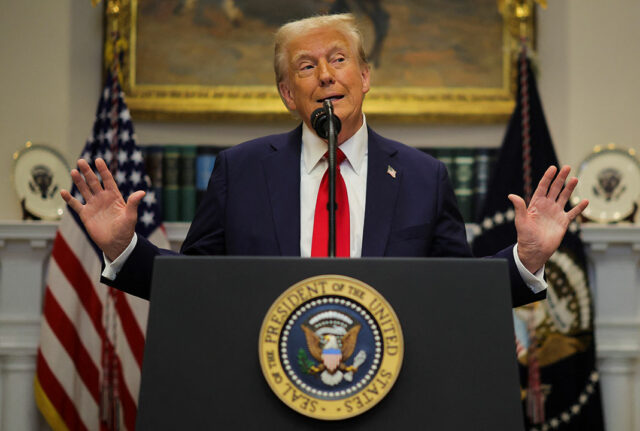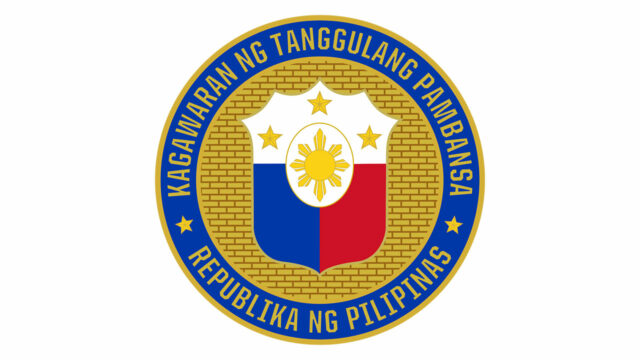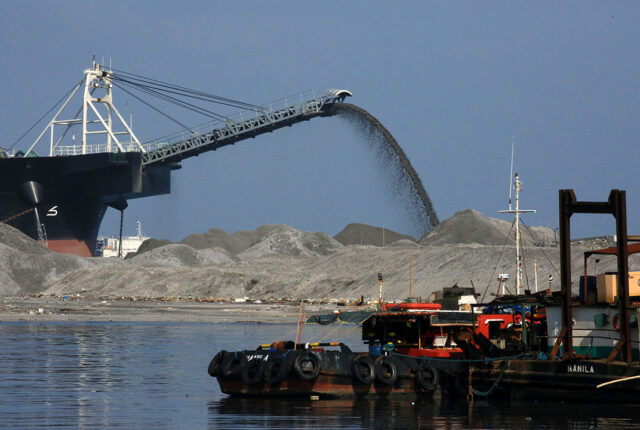By Kenneth Christiane L. Basilio and Adrian H. Halili, Reporters
THE PHILIPPINES should boost its military modernization push and pursue defense ties with other allies to hedge against US President Donald J. Trump’s so-called transactional diplomacy amid increasing tensions with China, political analysts said.
It should cut its dependence on the US to insulate itself from foreign policy shifts of Mr. Trump, whose meeting with Ukraine President Volodymyr Zelensky in Washington imploded on Friday after a heated argument, despite US commitment to their “ironclad” ties, they added.
“Manila should augment its own contingent plan and readiness for self-reliance even if the US still commits to their ironclad promise to the Philippines,” Chester B. Cabalza, founding president of Manila-based think tank International Development and Security Cooperation, said in a Facebook Messenger chat.
“Multiple defense partnerships with like-minded countries and continuous military modernization efforts are the best steps that Manila could take now,” he added.
During their meeting, Mr. Trump and the Ukrainian leader clashed in a heated engagement that led to the Ukrainian leader leaving the White House without signing a mineral deal seen by the US as crucial in ending the Russia-Ukraine war, Reuters reported.
Mr. Trump threatened to withdraw support for Ukraine, three years after Russia invaded its smaller neighbor, alarming Europeans who fear a rushed ceasefire could embolden an expansionist Russia.
Mr. Trump has shifted Washington’s policy on the Russia-Ukraine conflict since he took over, unravelling three years of US support to Kyiv and leading to the shock of its European allies.
The US, the Philippines’ oldest treaty ally, has been Ukraine’s most important bulwark against attacks by Russia, which invaded the Eastern European nation in February 2022.
“We do not like to hear from the US that one day, just like what Mr. Trump has said to Mr. Zelensky, that without their support, Ukraine can be easily defeated,” Mr. Cabalza said.
Manila should anticipate Washington’s leadership and diplomacy to be grounded on a transactional relationship, said Josue Raphael J. Cortez, who teaches diplomacy at De La Salle College of St. Benilde.
“The measures he employs to maintain American leadership in global affairs are way different from his predecessors,” he said in a Facebook Messenger chat. “We can expect that the manner of negotiations on agreements will be different this time.”
While Mr. Trump’s pivot to Russia may not have a direct impact on the Philippines, “it could influence regional dynamics and how the US may potentially engage with the Indo-Pacific region,” said Rocio Salle Gatdula, a defense economist taking up security studies at Georgetown University.
But defense ties with the US are “likely to remain strong” due to Mr. Trump’s hawkish stance against China, she said via Messenger chat.
The Philippines and China have been at loggerheads over disputed features in the South China Sea, which Beijing claims almost in its entirety. A United Nations-backed tribunal based in The Hague in 2016 voided China’s claim for being illegal.
“Washington is very much keen to continue promoting freedom of navigation as China’s dominance over these waters will undoubtedly generate negative impacts on American trading with their Southeast and East Asian partners,” Mr. Cortez said.
China claims sovereignty over almost the entire South China Sea, a vital waterway for more than $3 trillion of annual ship-borne commerce, putting it at odds with Brunei, Indonesia, Malaysia, the Philippines and Vietnam.
The Philippines should consider forging stronger alliances with Canada, France and New Zealand to reduce US dependence, Ms. Gatdula said, citing the need for more diplomatic and economic ties with other countries to counter geopolitical pressures.
‘BEST ALTERNATIVE’
China could benefit from Mr. Trump’s foreign policy shifts, such as what he did with Ukraine, according to Andy Mok, a senior research fellow at Beijing-based think-tank Center for China and Globalization.
“This disruption presents China with an opportunity to expand its influence in Southeast Asia, particularly in the South China Sea,” he said. “As traditional US partners question Washington’s reliability, China can position itself as a more stable and pragmatic force, deepening economic ties and reinforcing its regional claims.”
Mr. Cortez said China could use the Ukraine development to portray that it’s the “best alternative” as a global leader.
Meanwhile, the Philippines and Vietnam have agreed to strengthen maritime cooperation in the South China Sea, according to the Department of Foreign Affairs (DFA).
Foreign Affairs Undersecretary Ma. Theresa P. Lazaro met with Vietnamese Permanent Deputy Minister and Chairman of the National Boundary Commission Nguyen Minh Vu in Hanoi last week, it said in a statement.
The envoys discussed “peaceful and constructive approaches in managing the situation in the South China Sea,” the agency said.
Last year, the two nations filed separate extended continental shelf claims before the United Nations over areas in the South China Sea, 200 nautical miles beyond their exclusive economic zones.
“They recognized the need for pragmatic maritime cooperative endeavors in the area, such as on marine environmental protection, conservation and sustainable use of marine resources, marine scientific research, safety of navigation and communication at sea, search and rescue operations, combatting transnational crimes, and in promoting the law of the sea,” the DFA said.
It said the officials also supported more coast guard-to-coast guard and military-to-military cooperation between the two countries.
They also said they want to resume the joint marine scientific research expeditions in the South China Sea, where experts from both countries will study the marine resources and the environment.
Ms. Lazaro also met with Vietnamese Deputy Prime Minister and Minister of Foreign Affairs Bui Thanh Son, discussing the need to strengthen cooperation among Association of Southeast Asian Nations claimant states.
“They welcomed the broadening scope and increasing areas of collaboration between the two countries in the maritime domain and in economic interaction, as well as the regular high-level engagements that are set to take place in the coming months,” the DFA said in a separate statement.











